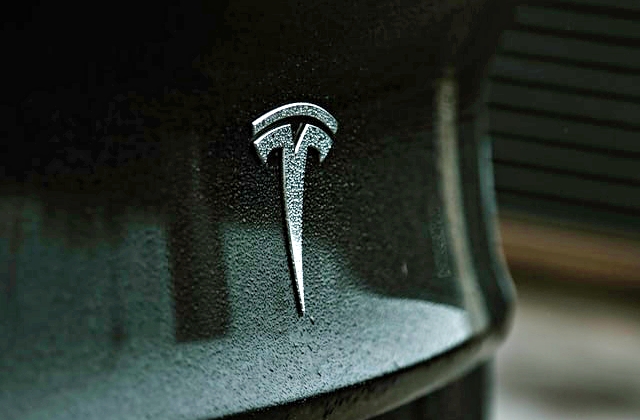Tesla lost in a discrimination case filed by its former employee after a San Francisco federal court announced its decision stating that Elon Musk’s company must pay the complainant, Owen Diaz.
The jury agreed that Diaz was subjected to racial harassment and a hostile work environment. His lawyers said on Monday, Oct. 4, that their client had to endure racism abuse while working for Tesla, and the jury found his claims to be true. As a result, he was awarded $137 million, where $130 million is for punitive damages, and the other $6.9 million is for emotional distress.
Bloomberg was the first publication to report about the decision on Diaz’s case against his former employer. It was mentioned that the Black employee worked as an elevator operator at Tesla. The electric car maker was said to have turned a blind eye to racial teasing and offensive graffiti while working at the company’s plant in California.
Owen Diaz joined Tesla in 2015, and he was hired through a staffing agency. His lawyer, Lawrence Organ, confirmed his client’s win against Tesla, but at this time, the verdict could not be immediately confirmed in electronic court records.
At any rate, CNBC reported that Diaz endured years of racism and discrimination. He told the court that his colleagues used nicknames to belittle or speak ill of him and other Black workers. He shared that they also told him to “go back to Africa” and drew racist graffiti and drawing in the restrooms and in his own workspace.
Diaz is being represented by attorneys Alexander Morrison + Fehr LLP’s J. Bernard Alexander and Larry Organ of the California Civil Rights Law Group based in San Anselmo. They stated that Owen’s case was only able to move forward as he did not sign one of Tesla’s required arbitration agreements which pressure employees to resolve or settle any dispute within the company instead of filing a case for public trial.
“We were able to put the jury in the shoes of our client,” Alexander told the publication. “When Tesla came to court and tried to say they were zero tolerance and they were fulfilling their duty? The jury was just offended by that because it was actually zero responsibility.”



 Gold Prices Slide Below $5,000 as Strong Dollar and Central Bank Outlook Weigh on Metals
Gold Prices Slide Below $5,000 as Strong Dollar and Central Bank Outlook Weigh on Metals  TSMC Eyes 3nm Chip Production in Japan with $17 Billion Kumamoto Investment
TSMC Eyes 3nm Chip Production in Japan with $17 Billion Kumamoto Investment  SpaceX Prioritizes Moon Mission Before Mars as Starship Development Accelerates
SpaceX Prioritizes Moon Mission Before Mars as Starship Development Accelerates  Gold and Silver Prices Rebound After Volatile Week Triggered by Fed Nomination
Gold and Silver Prices Rebound After Volatile Week Triggered by Fed Nomination  Sony Q3 Profit Jumps on Gaming and Image Sensors, Full-Year Outlook Raised
Sony Q3 Profit Jumps on Gaming and Image Sensors, Full-Year Outlook Raised  Dollar Steadies Ahead of ECB and BoE Decisions as Markets Turn Risk-Off
Dollar Steadies Ahead of ECB and BoE Decisions as Markets Turn Risk-Off  U.S. Stock Futures Slide as Tech Rout Deepens on Amazon Capex Shock
U.S. Stock Futures Slide as Tech Rout Deepens on Amazon Capex Shock  Japanese Pharmaceutical Stocks Slide as TrumpRx.gov Launch Sparks Market Concerns
Japanese Pharmaceutical Stocks Slide as TrumpRx.gov Launch Sparks Market Concerns  Trump Lifts 25% Tariff on Indian Goods in Strategic U.S.–India Trade and Energy Deal
Trump Lifts 25% Tariff on Indian Goods in Strategic U.S.–India Trade and Energy Deal  South Africa Eyes ECB Repo Lines as Inflation Eases and Rate Cuts Loom
South Africa Eyes ECB Repo Lines as Inflation Eases and Rate Cuts Loom  SpaceX Pushes for Early Stock Index Inclusion Ahead of Potential Record-Breaking IPO
SpaceX Pushes for Early Stock Index Inclusion Ahead of Potential Record-Breaking IPO  FDA Targets Hims & Hers Over $49 Weight-Loss Pill, Raising Legal and Safety Concerns
FDA Targets Hims & Hers Over $49 Weight-Loss Pill, Raising Legal and Safety Concerns  OpenAI Expands Enterprise AI Strategy With Major Hiring Push Ahead of New Business Offering
OpenAI Expands Enterprise AI Strategy With Major Hiring Push Ahead of New Business Offering  Nvidia CEO Jensen Huang Says AI Investment Boom Is Just Beginning as NVDA Shares Surge
Nvidia CEO Jensen Huang Says AI Investment Boom Is Just Beginning as NVDA Shares Surge  Dollar Near Two-Week High as Stock Rout, AI Concerns and Global Events Drive Market Volatility
Dollar Near Two-Week High as Stock Rout, AI Concerns and Global Events Drive Market Volatility  Amazon Stock Rebounds After Earnings as $200B Capex Plan Sparks AI Spending Debate
Amazon Stock Rebounds After Earnings as $200B Capex Plan Sparks AI Spending Debate 































